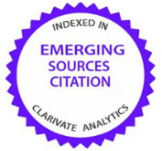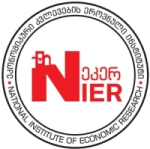Perspective directions of improvement of management of intergovernmental fiscal relations in Ukraine on the example of the developed countries of the world
Abstract
Introduction. In any state, due to the existence of an administrative-territorial division, there are relations between public authorities of different levels in the budgetary sphere. The main task of organizing and managing inter-budgetary relations is to provide state guarantees at a certain minimum acceptable level throughout the territory and all citizens regardless of their place of residence when receiving equal state social services. At present, unfortunately, in Ukraine there is a political inconsistency in the problem of the division of competences and responsibility for the implementation of specific functions of central, regional and local authorities, which negatively affects the processes of redistribution of intergovernmental resources. The financial independence of territorial communities can not be based without a clear distribution of tax revenues, spending powers between levels of government, and a mechanism for making financial, independent decisions.
Aim and tasks. The purpose of this article is to investigate the mechanisms of implementation of the state budget policy and the model of organization of public administration of budget relations, which are used in economically developed countries of the world in order to determine their specificity, which will enable to effectively regulate the current economic situation in Ukraine.
Research results. The current mechanism of budgetary equalization and the model of organization of public administration of budget relations in Ukraine is analyzed. The models of state participation in budget policy of different countries of the world are outlined. The components of the mechanism of management and regulation of interbudgetary relations at the regional level are determined. The economic models of all countries of the world, which can be distinguished from states with a unitary system, where they are noted much more than with the federal system, are investigated.
Conclusion. Considering the model of the mechanism of management of inter-budgetary relations, one can conclude that there is no definite model acceptable to all countries of the world. The construction of a specific mechanism is based on the level of decentralization of the budget and taxation system, the scope of the powers of local authorities, the political choice between efficiency and equality, the depth and degree of disproportion between administrative and territorial units. The most effective model of intergovernmental relations in Ukraine can be considered a model, which will use the appropriate level of fiscal independence of local governments with the implementation of unitary, that is, a unified legal framework, the maintenance of a unified accounting, budget classification and management of budgetary relations.
Keywords:
intergovernmental fiscal relations, intergovernmental fiscal transfers, state budget, local budgets, financial equalizationReferences
2. Kazyuk, Ya.M. (2013) The system of financial equalization and features of methods for determining intergovernmental transfers: the experience of European countries. BUDAPEST [in Ukrainian].
3. Kazyuk, Ya.M. (2013). Models of Public Administration of Intergovernmental Fiscal Relations in Developed Countries: Lessons for Ukraine. Teoriya ta praktyka derzhavnoho upravlinnya i mistsevoho samovryaduvannya. Retrieved from http://nbuv.gov.ua/UJRN/Ttpdu_2013_1_9 [in Ukrainian].
4. Bailey, S.J. (1999). Local Government Economics: Principles and Practice. Macmillan press ltd, London: Macmillan press.
5. Merna, A., & Njiru, C. (2002). Financing Infrastructure Projects. Thomas Telford Publishing.
6. Zajchykova, V.V. (2007). Local finances of Ukraine and European countries. Kiev: NDFI [in Ukrainian].
7. Kuljchycjkyj, M. I. (2015). Strategy of the state policy of Ukraine in the context of financial decentralization. Economics, management, law: problems and prospects, 2, 64 – 74 [in Ukrainian].
8. Bodrova, V.Gh. (2006). Regulation of intergovernmental relations: Ukraine and European experience. Kiev: NADU [in Ukrainian].
9. Spearman, K.C. (2000). Operating Budget LGFM. Bratislava.
10. Shyshko, O.V. (2011). Areas of development of the system of inter-budgetary relations of Ukraine in the medium-term perspective. Finansy Ukrajiny, 7, 51-61 [in Ukrainian].
11. Lunina, I. O.(2006) Public finances and reform of inter-budgetary relations. Kiev: Nauk. Dumka [in Ukrainian].
12. Jacenko, Ju.O. (2011). World experience of fundamentals of financial equalization organization: lessons for Ukraine. Ekonomika Ukrajiny, 6, 66-77 [in Ukrainian].
13. Consultative Support for Local Budget Reform, QCBS-2: Final Report. (2010). Retrieved from: www.minfin.gov.ua/file/ link/316393/file/Final_report_QCBS-2_ukr.rar. [in Ukrainian].

This work is licensed under a Creative Commons Attribution-NonCommercial 4.0 International License.
If the article is accepted for publication in the journal «Economics. Ecology. Socium» the author must sign an agreementon transfer of copyright. The agreement is sent to the postal (original) or e-mail address (scanned copy) of the journal editions.






















